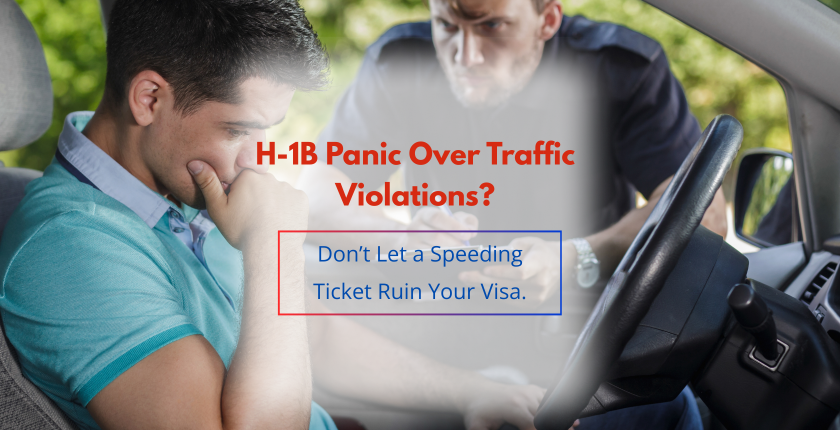H-1B Panic: Visa Denial Over Speeding Tickets?
Can a speeding ticket really cost you your visa?
A wave of confusion has hit the H-1B community following reports and online chatter that
minor traffic violations—like speeding—could lead to visa denial or renewal delays.
Here’s what you need to know before jumping to conclusions.
The Reality: Speeding ≠ Deportation
A basic speeding ticket is typically a civil infraction, not a criminal offense. That means:
- No, a speeding ticket alone will not get your visa denied.
- Yes, if mishandled, it can raise red flags during visa processing.
When It Can Become a Problem?
Minor violations only become serious when they’re unresolved or escalate legally. Here’s
when trouble starts:
- Unpaid fines or missed court dates can lead to bench warrants.
- Violations tied to reckless driving, DUI, or repeat offenses may be treated as criminal,
affecting your immigration record. - During visa stamping or renewal, consulates may flag your file if there’s no proof of
resolution or if background checks reveal concerns.
What Do USCIS and Consulates Actually Check?
- Complete criminal and civil background history.
- Court dispositions for any cited violations.
- Consistency across documents (DS-160, I-129, interviews).
- Even minor inconsistencies or unresolved matters can trigger 221(g) administrative
processing delays.
Pro Tips for H-1B Holders
Stay ahead of issues with these smart moves:
- Always pay fines on time.
- Keep digital and physical proof of payment.
- Attend all required court dates.
- Be transparent in visa forms and interviews.
- Seek legal advice for anything beyond basic infractions.
Bottom Line: Stay Informed, Not Alarmed
Not all traffic tickets are created equal. A routine speeding fine won’t cancel your H-1B—but
ignoring it could lead to avoidable complications. Treat even minor citations seriously, and
always stay document-ready.


